******* UPDATE ********
As suggested in the comments I eliminated the irrelevant part of the code:
My requirements:
- Unify number of milliseconds to 3
- Transform string to timestamp and keep the value in UTC
Create dataframe:
val df = Seq("2018-09-02T05:05:03.456Z","2018-09-02T04:08:32.1Z","2018-09-02T05:05:45.65Z").toDF("Timestamp")
Here the reults using the spark shell:
************ END UPDATE *********************************
I am having a nice headache trying to deal with time zones and timestamp formats in Spark using scala.
This is a simplification of my script to explain my problem:
import org.apache.spark.sql.functions._
val jsonRDD = sc.wholeTextFiles("file:///data/home2/phernandez/vpp/Test_Message.json")
val jsonDF = spark.read.json(jsonRDD.map(f => f._2))
This is the resulting schema:
root
|-- MeasuredValues: array (nullable = true)
| |-- element: struct (containsNull = true)
| | |-- MeasuredValue: double (nullable = true)
| | |-- Status: long (nullable = true)
| | |-- Timestamp: string (nullable = true)
Then I just select the Timestamp field as follows
jsonDF.select(explode($"MeasuredValues").as("Values")).select($"Values.Timestamp").show(5,false)
First thing I want to fix is the number of milliseconds of every timestamp and unify it to three.
I applied the date_format as follows
jsonDF.select(explode($"MeasuredValues").as("Values")).select(date_format($"Values.Timestamp","yyyy-MM-dd'T'HH:mm:ss.SSS'Z'")).show(5,false)
Milliseconds format was fixed but timestamp is converted from UTC to local time.
To tackle this issue, I applied the to_utc_timestamp together with my local time zone.
jsonDF.select(explode($"MeasuredValues").as("Values")).select(to_utc_timestamp(date_format($"Values.Timestamp","yyyy-MM-dd'T'HH:mm:ss.SSS'Z'"),"Europe/Berlin").as("Timestamp")).show(5,false)
Even worst, UTC value is not returned, and the milliseconds format is lost.
Any Ideas how to deal with this? I will appreciated it
BR. Paul



